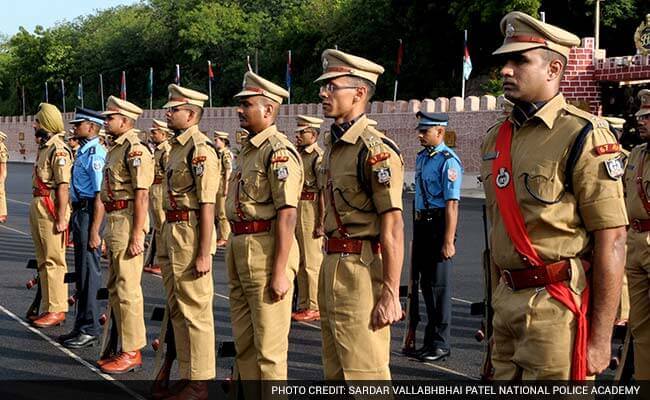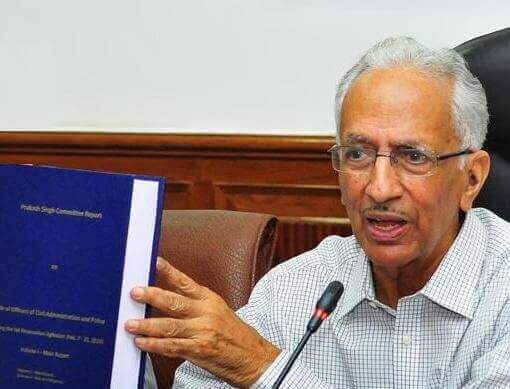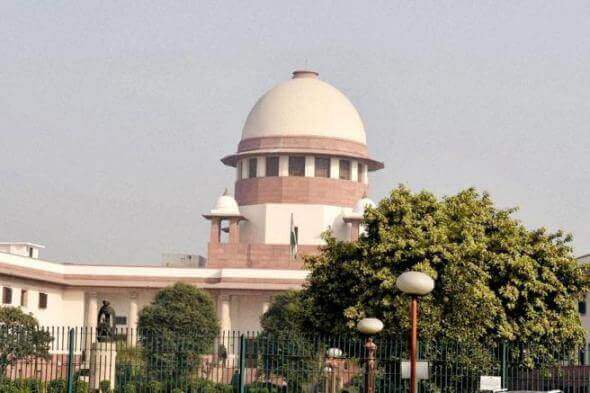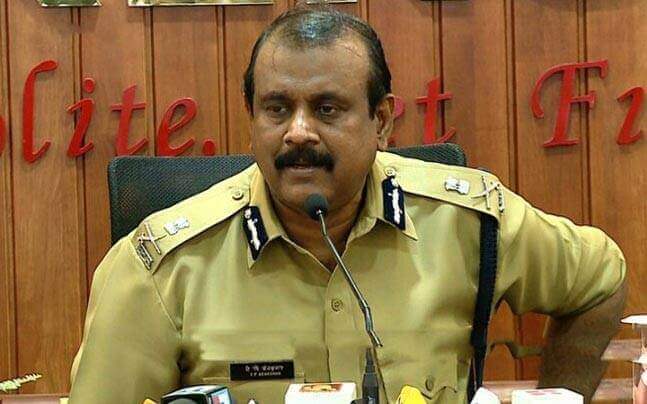
Police Reforms: Why in news now?

The Supreme Court for the first time in history, on 24-04-17, ordered the reinstatement of ousted Kerala DGP T.P. Senkumar, sending out a clear message that police officers cannot be made “scapegoats” by politicians in power.
The decision is likely to have repercussions in States were police chiefs were removed by the political dispensation against the Supreme Court’s ruling in Prakash Singh Case (we will be discussing the same below) that DGP should have a fixed tenure of two years and not be subject to the whims of the political powers in the State.
Role of Police in a Parliamentary Democracy
There is no doubt that police have a vital role in a parliamentary democracy. The police ensure safety and security of the society. The rate and complexity of the crime have increased over the years adding new dimensions to the responsibilities of police. The present Indian police system is largely a legacy of the British rule in India since it is based on the Police Act of 1861.
A.H.L Fraser Commission
A.H.L Fraser, the chairman of the commission appointed by the British in 1902 said:
The police force is far from efficient, it is defective in training and organizing, it is inadequately supervised, it is generally regarded as corrupt, oppressive and it utterly failed to secure the confidence and cordial cooperation of the people.
Since 1902, little has changed. The functions of the police during the British time are different from the functions that are to be performed after the independence. After independence, India had adopted the most inclusive and comprehensive constitution to ensure the welfare of the citizens but the institution of police which is responsible for implementing the law and order was not overhauled.
Police is a State Subject
- Police is an exclusive state subject and the center has its limitations in this regard.
- After independence, some states came out with their own police acts.
- For example, the Bombay Police act, 1951; the Kerala Police act 1960; the Delhi Police act, 1978.
However, all of these police acts were a replica of the Indian police act, 1861. This has in extreme situations made the situation of guardian turning predator and the confidence of the people has come down.
National Police Committee, 1978
- This was the first commission at the national level after independence.
- It had wide terms of reference covering the police organization, its role, functionality, accountability, relations with the public etc.
This committee gave a comprehensive report and recommended to bring an autonomous body of organization which could be accountable to people. However, the major recommendations of this committee were not accepted by the government.
Important Case: Prakash Singh and others vs the Union of India (1995)

- In 1995, Prakash Singh, former DGP of Uttar Pradesh filed a PIL regarding police reforms in India.
- This led to the government constituting a new committee under the chairmanship of Julio Ribeiro, and the Julio Ribeiro Committee was formed in 1998.
- This was followed by further committees like Padmanabhaiah, Malimath committee, Soli Sorabjee committee.
- In 2006, since there were no movements in the direction of reforms, the Supreme Court made the police reforms a mandatory reform to be taken up by the central and state governments.
The Seven Directives by Supreme Court (2006)

The apex court gave its nearly revolutionary directions in 2006, a decade after Mr. Singh first filed his petition. The states and union territories were directed to comply with seven binding directives that would kick-start reform.
1) Directive One
Constitute a State Security Commission (SSC) to:
- Ensure that the state government does not exercise unwarranted influence or pressure on the police.
- Lay down broad policy guideline.
- Evaluate the performance of the state police.
2) Directive Two
- Ensure that the DGP is appointed through the merit-based transparent process and secure a minimum tenure of two years.
3) Directive Three
- Ensure that other police officers on operational duties (including Superintendents of Police in-charge of a district and Station House Officers in-charge of a police station) are also provided a minimum tenure of two years.
4) Directive Four
- Separate the investigation and law and order functions of the police.
5) Directive Five
- Set up a Police Establishment Board (PEB) to decide transfers, postings, promotions and other service related matters of police officers of and below the rank of Deputy Superintendent of Police and make recommendations on postings and transfers above the rank of Deputy Superintendent of Police.
6) Directive Six
- Set up a Police Complaints Authority (PCA) at state level to inquire into public complaints against police officers of and above the rank of Deputy Superintendent of Police in cases of serious misconduct, including custodial death, grievous hurt, or rape in police custody and at district levels to inquire into public complaints against the police personnel below the rank of Deputy Superintendent of Police in cases of serious misconduct.
7) Directive Seven
- Set up a National Security Commission (NSC) at the union level to prepare a panel for selection and placement of Chiefs of the Central Police Organizations (CPO) with a minimum tenure of two years.
After this, 14 states have passed legislation but these were mainly to circumvent the directives but not to implement them. Till today, the government has not shown its commitment to follow the directives of the court in true letter and spirit.
“Police reforms are going on and on. Nobody listens to our orders.” – Supreme Court
“Police reforms are going on and on. Nobody listens to our orders.” This is how a Supreme Court bench headed by Chief Justice J.S. Khehar reacted while declining the plea of a lawyer demanding immediate action to usher in major police reforms in the country (March 2017). The lawyer had earlier been permitted to implead himself in a pending PIL on the subject.
It is sad that the highest court of the land is so helpless in the matter.
T P Senkumar Case

T P Senkumar – DGP of Kerala – was transferred by the Left Democratic Front government led by Chief Minister Pinarayi Vijayan to the Kerala Police Housing and Construction Ltd as its chairman and managing director. Lokanath Behara had replaced him as the new DGP.
Though it may be argued that the government has the right to appoint a DGP of its choice, but Senkumar had argued that the case against him reeked of arbitrariness and was a result of his fair and efficient probe in the cases of political murders in the state, wherein some leaders of the present government were found to be accused.
In a major verdict, the Supreme Court ordered the Kerala government to restore the services of ousted DGP T P Senkumar holding that his removal was arbitrary and not as per established law. It’s rare for the apex court to interfere in such appointments and the ruling has led to a debate on judicial overreach.
Why do we need police reforms?
- The security of the society and the welfare of the people is dependent on the efficiency of the police.
- To eliminate the undue political interference which led to the loss of autonomy of police. The police of today are victims of politicization as well as criminalization.
- To instill the confidence of the people in the institution of police by making police more people friendly
- To prevent the highhandedness of police in the form of extra-judicial killings. Recently NHRC noted that 206 cases of encounters occurred in the last 12 months
- To continue security and growth with our high economic growth, the maintenance of law and order plays a vital role.
The recent example of Haryana police during the Jat reservation riots either due to inherent caste bias or hesitation of not getting support by the people further stresses the need for reforms.
Challenges and solutions
- Challenges like police training and quantity of force along with the quality, the long working hours as well as the isolation of police force from the public in the form of separate living quarters should be looked into.
- Police should be made an integral part the society they live in.
- Police reforms should no longer be delayed and the civil society should play its role for faster action by the government.
Summary
The nation can no longer afford a politician’s police and it’s time for people’s police.
The Supreme Court’s directions on police reforms have not been complied with in letter and spirit by any state. Many states have enacted laws to legitimise the status quo and circumvent the implementation of the Court’s directions. Some states have passed executive orders which dilute or amend the SC’s directions. No wonder the Justice Thomas committee, which was set up to monitor the implementation of the Court’s directions, expressed a sense of “dismay” over the indifference to judicial directions.
The verdict in TP Senkumar case was in continuation of the Prakash Singh case that would be applicable to all the States. It’s high time that the states should obey the Supreme Court directives. Urgent steps should be taken by all states to set up police complaints authority, Security Commission and separate the law and order and investigation wings.
Read: Police organization in India
Article by: P. Ujwala with inputs from ClearIAS Team.






how to prepare geography for pre-cum-mains?
are these notes useful for upsc cse 2025